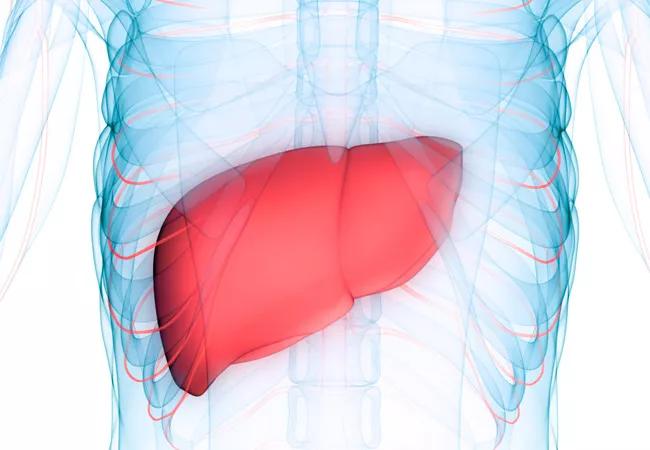Advertisement
Early-stage research offers hope

New research out of Lerner Research Institute’s Department of Pathobiology provides hope for preventing liver inflammation caused by long-term alcohol abuse. This early-stage research helps illustrate how alcohol damages the liver and may offer targets for future preventive therapies.
Advertisement
Cleveland Clinic is a non-profit academic medical center. Advertising on our site helps support our mission. We do not endorse non-Cleveland Clinic products or services. Policy
Excessive ethanol (alcohol) consumption is associated with gut dysbiosis. This imbalance can have negative effects on key biological processes including metabolism, immunity and intestinal integrity. When the intestinal barrier becomes leaky because of alcohol abuse, harmful bacteria from the intestines commonly and easily travel to the liver, which becomes inflamed.
Gut dysbiosis also alters the ratio of short-chain fatty acids found in the intestines. Specifically, chronic alcohol consumption results in significantly lower levels of butyrate, which is important for intestinal health. These fatty acid imbalances are associated with cellular inflammation and death, muscular atrophy and disease pathology in the colon.
A team of Lerner researchers led by Gail Cresci, PhD, RD, and Laura Nagy, PhD, set out to investigate whether reversing out-of-balance short-chain fatty acid ratios might prevent or correct alcohol-related liver injury. Specifically, they were curious to learn whether tributyrin, an oral butyrate analogue, can increase intestinal integrity and reduce barrier permeability.
To test this hypothesis, the researchers measured the health effects of different diet regimens in two groups of mice. They found that chronic-binge ethanol exposure had negative effects on intestinal barrier function, except in mice that were fed tributyrin. The improvement in the intestinal integrity prevented proinflammatory responses in the liver, which in turn reduced liver injury.
While additional studies are needed to validate these findings in preclinical models and humans, this early data is encouraging. It suggests short-chain fatty acid ratios may be an important target for treating and preventing alcohol-related liver damage.
This research, which was partially funded by a grant awarded to Dr. Cresci from the National Institute on Alcohol Abuse and Alcoholism (NIAAA), part of the National Institutes of Health, and the Northeast Ohio Alcohol Center (NOAC), was published in the Journal of Gastroenterology and Hepatology. The NOAC is also funded by NIAAA. Dr. Nagy is director of the center, which is a collaborative research team comprising members from several research institutions in Northeast Ohio. Dr. Cresci is a staff member in the Pediatric Institute, Department of Pediatric Gastroenterology, Lerner Research Institute, Department of Pathobiology and Digestive Disease and Surgery Institute, Department of Gastroenterology, Hepatology & Nutrition.
Advertisement
Advertisement

Cleveland Clinic study finds that durable weight loss is key to health benefits

Findings could help promote organ preservation

A proof-of-concept study shows how 3D pouchography can be a useful adjunct for surgeons

New research shows dramatic reduction in waitlist times with new technology

Potential for new, non-invasive screening option

Provider vigilance and patient education are key for management

Reassuring results, but patient education is still important

An individualized approach to care is still essential